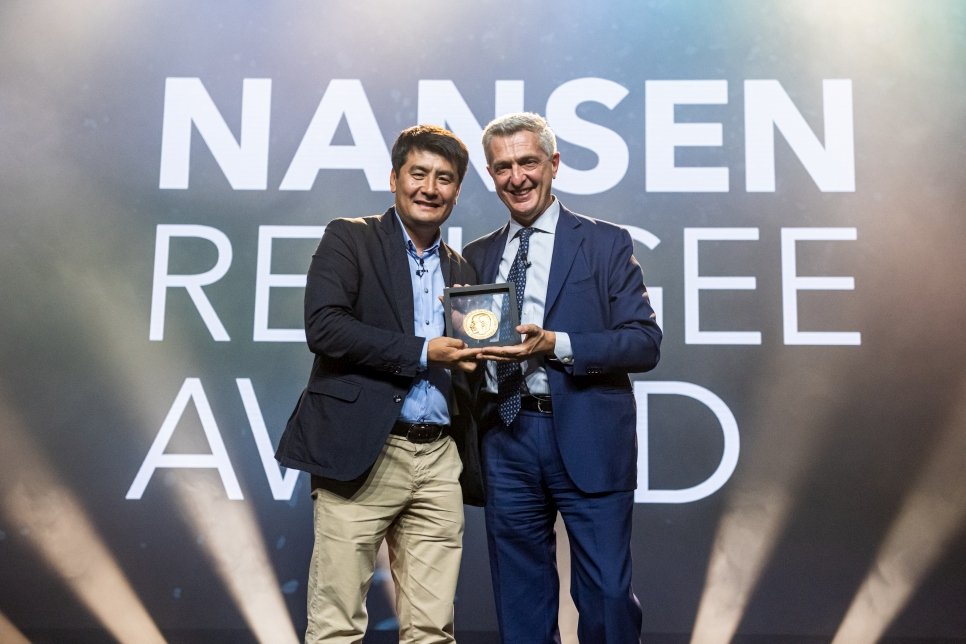Nominate
The winner receives USD 150,000 to invest in their humanitarian work. Four regional winners are also selected and honoured with a certificate.
Our 2019 laureate is Mr. Azizbek Ashurov – a lawyer, whose work has supported the efforts of the Kyrgyz Republic in becoming the first country in the world to end statelessness. Mr. Ashurov was honoured during the UNHCR’s Nansen Refugee Award ceremony on 7 October for his dedication and commitment to eradicating statelessness in Kyrgyzstan and in the region. Read more about this incredible winner.
FAQs - nominations
Who can be nominated for the award?
Any individual, group of people or organization that has displayed extraordinary humanitarian work on behalf of refugees, displaced or stateless peoples is eligible to be nominated. Former and current UNHCR staff, including United Nations Volunteers (UNVs) working for UNHCR offices, are ineligible.
Can I nominate myself?
Self-nominations are strongly discouraged. This includes individuals and organizations nominating themselves.
What criteria will be considered to determine the winner?
Nominees are considered in the following light:
- The deed for which the person/ entity is nominated should take place outside the framework of normal professional duties and go beyond the call of duty;
- It should demonstrate courage;
- It should raise awareness for displaced people; and
- It should reflect the values of UNHCR.
Who selects the winner?
The Nansen Refugee Award Selection Committee comprises:
- A member designated by the Norwegian Government;
- A member designated by the Swiss Government;
- The Secretary General of the Council of Europe;
- Executive Director of the International Council of Voluntary Agencies;
- The Chairperson of Executive Committee; and
- A guest member.
Is the selection process confidential?
Yes, the selection of the winner and finalists is completely confidential.
When is the deadline for nominations?
Nominations are now closed.
How do I obtain a nomination form?
Nominations are now closed.
How do I submit a nomination? How can I be sure it has been received?
All nominations must be submitted online. Once the nominations are closed, you will receive a response from the Nansen Secretariat to confirm we have received the nomination.
Must the nomination be in English?
No. Nominations can be submitted in any of the official languages of the United Nations (English, French, Spanish, Arabic, Russian, and Chinese). Please contact the Nansen secretariat for a different language version template: [email protected]
What do I need to provide to supplement my nomination?
Nominations consist of a description of the nominee’s work and how they fulfil the selection criteria. This includes details of why the nominee should be considered, evidence that they have positively impacted the lives of the forcibly displaced and links to articles and publications as evidence. Additional information supporting the nomination, including websites, news articles, social media posts and other awards bestowed on the nominee, is welcome.
Do I need to provide references?
Nominations will not be considered if three references are not included. These referees should be diversely selected and have the ability to verify the nominees’ work with or for refugees, displaced people, stateless people, asylum seekers and resettled refugees and why their work has made a significant impact on their lives.
How many winners are honored with the Nansen Refugee Award annually?
As a general rule, one recipient is chosen each year. In exceptional circumstances more than one winner has been awarded.
Are other nominees recognised?
Since 2017, for the first time ever, runners-up to the Award were recognised. In 2020, four regional finalists will be selected, from different geographical locations around the world.

